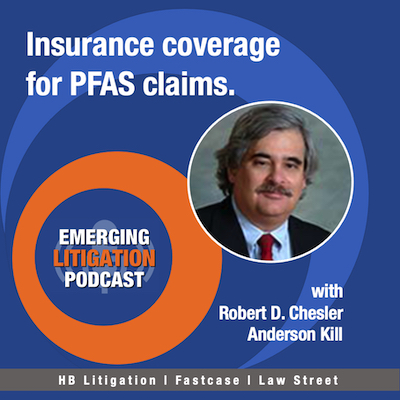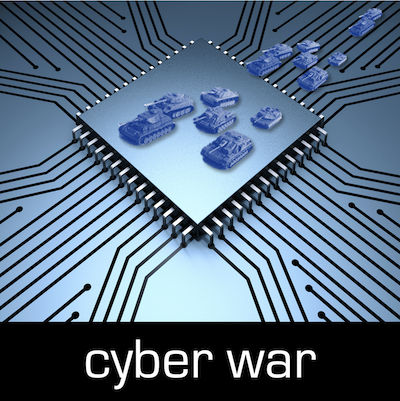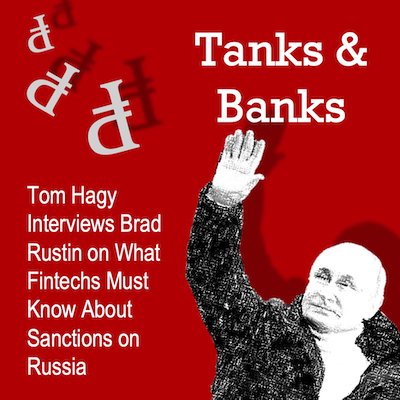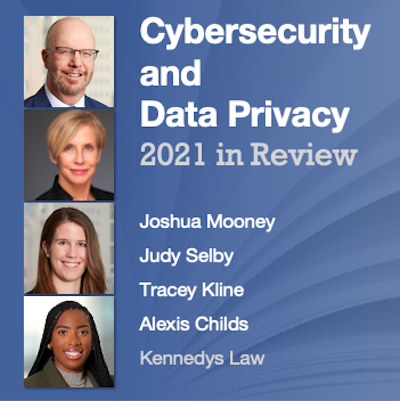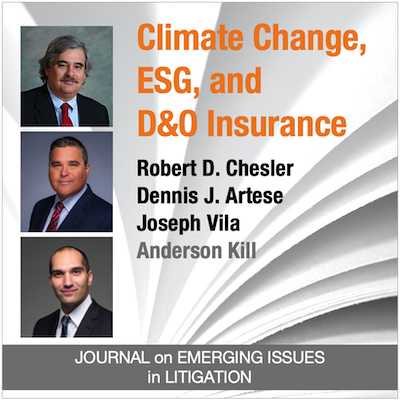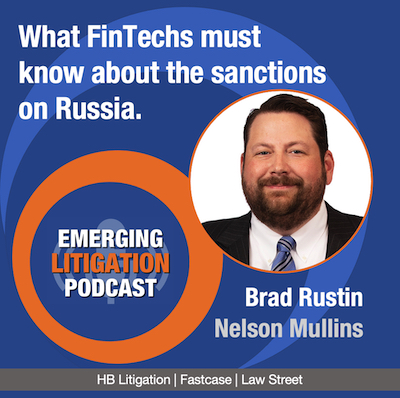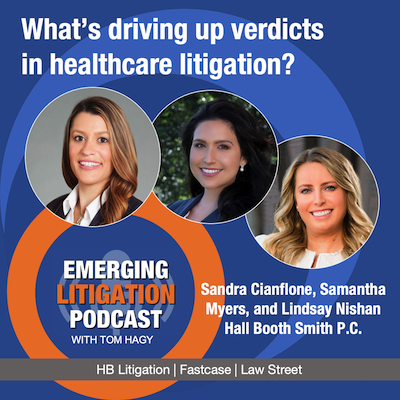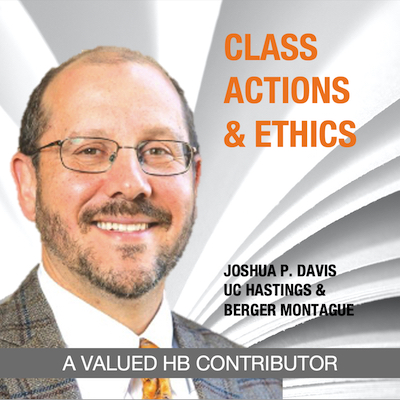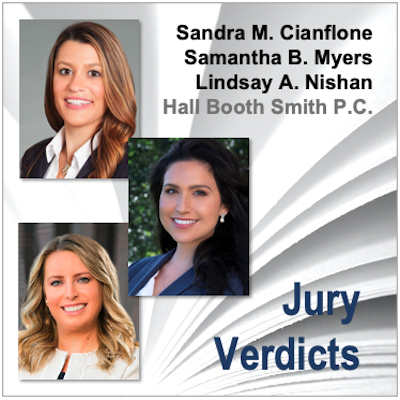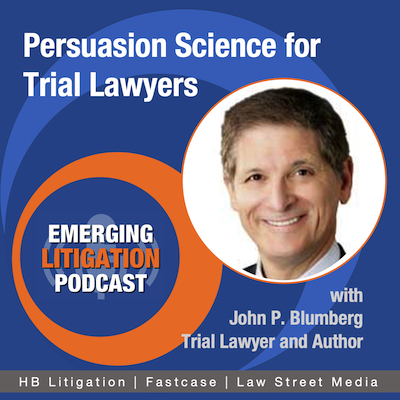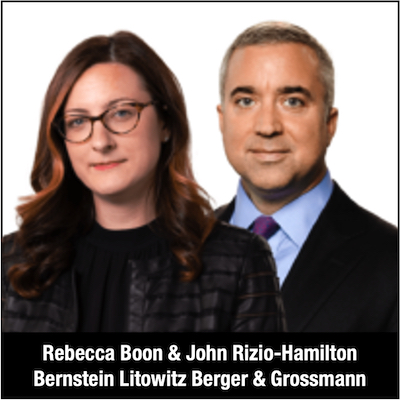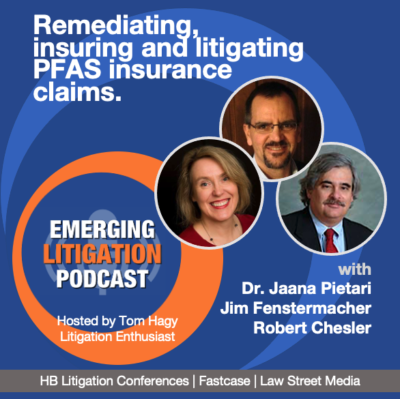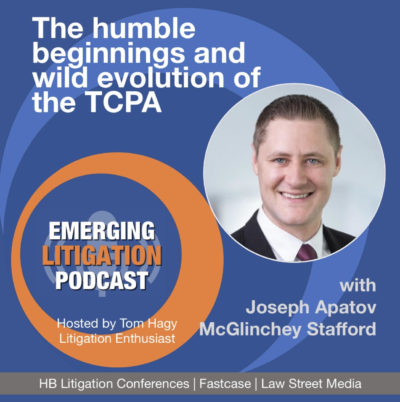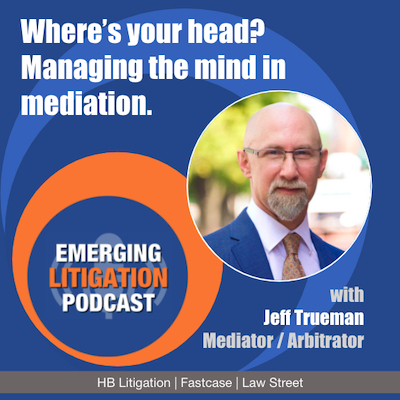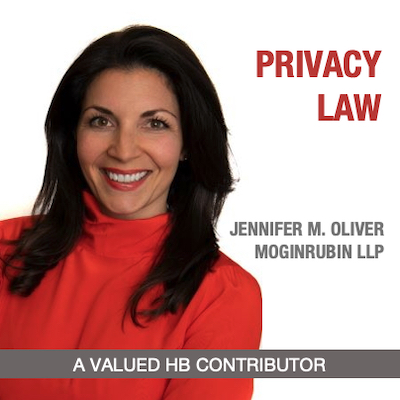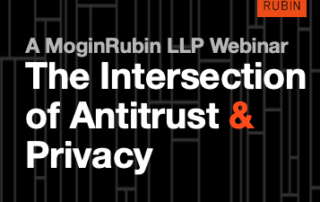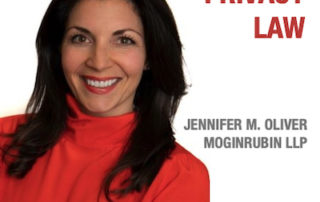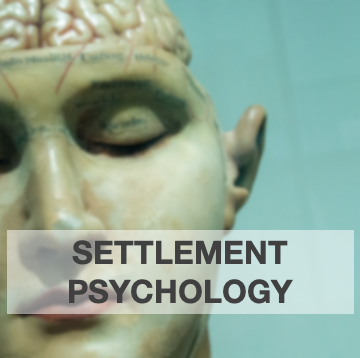Emerging Litigation Podcast
The Awesome Potential of Advanced Dispute Resolution
In this episode we talk to Rich Lee, founder of New Era ADR, about hot topics and issues involving what is referred to here as "Advanced Dispute Resolution", or ADR. What are the benefits of ADR? How can ADR enhance Access to Justice? How does employing ADR impact Accessibility, Diversity, and the Environment? What is the influence of Gamesmanship in legal proceedings? As Rich explains, "ADR is about rethinking litigation to make it more efficient for both sides. Get parties to be pragmatic, get to the point, present their arguments, and get it resolved". Listen now to learn more!
Applying Business Strategy to Your Law Firm
In this episode of the Emerging Litigation Podcast, we hear from James Grant about looking strategically at your law firm as you would any business and explore one litigation firm’s journey through that transformative process. As he argues, "lawyers must learn AI now or else watch their competition fly past them in operational efficiency, customer service, and client retention". Listen to learn more!
PFAS Regulation, Litigation, and Differentiation
In this episode, we give you some history of the PFAS compounds, discuss some of their important differences, review what litigation we're seeing (including the various claims and defenses), note what we can learn from recent settlement structures, forecast the impact of any new regulation, and predict what litigation might be next. Listen to our guests David Marmins and Morgan Harrison of Arnall Golden Gregory LLP.
A Shameless Plug for Our Content Services
Your content marketing is everything you’ve ever dreamed of. Right?

Critical Legal Content was founded by Tom Hagy, former Editor & Publisher of Mealey’s Litigation Reports and VP at LexisNexis, founder of HB, current litigation podcaster and editor-in-chief. CLC’s mission is to help smaller firms and service providers not only create content — blogs, articles, papers, webinars, podcasts (like the stuff on this site) — but also to get it out there. How? Via social media, this website, your website, and potential via our podcast and journal which we publish in collaboration with vLex Fastcase and Law Street Media. The goal is to attract readers and dizzy them with your brilliance.
*Inspired by actual events.
Create content like a real legal publisher.
Emerging Litigation Journal
JEIL S24 Top Legal Risks with Generative AI by Graham Reynolds, Robin Sagstetter, and Damon W.D. Wright
The authors, Graham Reynolds, Robin Sagstetter, and Damon W.D. Wright discuss recent court cases which have brought to the forefront the top legal risks associated with the use of Generative AI.
The Use and Abuse of the Pollution Exclusion by Robert D. Chesler, Dennis J. Artese, and Jamie O’Neill
The authors, Robert Chesler, Dennis Artese, and Jamie O'Neill of Anderson Kill examine recent court decisions and ongoing cases that have brought to the forefront the critical issue of the reach of pollution exclusions in insurance policies.
Cracking the College Sports “Cartel”: Good for Athletes, Competition, and the Games by Joy Sidhwa and Tim LaComb
Momentum in the national debate over whether a college athlete should profit from licensing deals for their “names, images, and likenesses,” or NILs, swung in favor of players on June 21, 2021, when the Supreme Court ruled for the athletes in NCAA v. Alston. Authors Joy Sidhwa and Tim LaComb of MoginRubin, LLP discuss the impacts of the decision and subsequent court decisions and state legislation which have further cemented and defined the changing amateurism rules in college sports. As the authors note, "the ultimate test of whether amateurism drives demand will come after new state laws allow compensation unrelated to education. If compensation doesn’t trigger a drop in demand, the NCAA will lose its procompetitive justification for the restriction and likely bring an end to amateurism rules".
HB Webinars on CeriFi LegalEdge
The Intersection of Antitrust & Privacy | A MoginRubin Webinar | 10.31.2019
[two-fifths-first] Recorded: Oct. 31, 2019 Duration: 100 minutes Presented by: MoginRubin LLP Produced by: HB Litigation Conferences The Panel Moderator Daniel J. Mogin | Managing Partner, MoginRubin LLP Speakers Jennifer M. Oliver, CIPP/US | Partner, MoginRubin LLP Thomas N. Dahdouh | Director, Western Region, Federal Trade Commission Franklin M. Rubinstein | Partner, Wilson Sonsini Goodrich & Rosati Randi W. Singer, CIPP/US, CIPT | Partner, Weil, Gotshal & Manges Contributor Dina Srinivasan | Independent Researcher & Author of The Antitrust Case Against Facebook Dina was unable to present but we thank her for her content contributions. What you will get: At least 1 hour of CLE credit. Answers to your questions via email. The opportunity to share with others on your team. The complete Powerpoint. The Antitrust Case Against Facebook Dina Srinivasan's statement to the House Committee on the Judiciary, Subcommittee on Antitrust, Commercial, and Administrative Law The Chicago Booth School Stigler Center Committee on Digital Platforms Final Report Write to us at CLE@LitigationConferences.com to: Ask about CLE Request the materials Send a question for the speakers [/two-fifths-first][three-fifths] Market Behavior and Data-Driven Market Power Highly publicized cases and investigations in the U.S. and Europe of big technology, e-commerce, and social media companies demonstrate how anti-competition laws are being used to scrutinize and challenge not only how these corporations conduct themselves in the marketplace, but the very core of their colossal success: the mass collection and utilization of user data. Are the privacy and antitrust worlds beginning to cross over? Or do they simply run parallel while addressing entirely different types of conduct? Whatever the answer, data is the raw material that drives the likes of Google, Facebook, Apple and Amazon, so how it is handled is a critical question when counseling clients on mergers and acquisitions. Meanwhile, there is increasing pressure on antitrust enforcers to consider privacy issues when conducting merger reviews. Antitrust laws [...]
Settlement Psychology: Who is in Control? Homer Simpson or Mr. Spock? | Complimentary Webinar
Settlement Psychology Who's in charge? Homer Simpson or Mr. Spock? Cognitive obstacles to finding common ground. [two-fifths-first] Complimentary On-Demand Webinar From HB! 1 CLE credit CLE questions? CLE@LitigationConferences.com Questions for speakers? Questions@LitigationConferences.com SPEAKERS Jeff Trueman Mediator / Negotiator John Philip Miller Baltimore City Circuit Judge (ret.) This course is also available via the West LegalEdcenter. [/two-fifths-first] [three-fifths] Improve your negotiation strategy and outcomes. Mediator, arbitrator and settlement conference neutral Jeff Trueman says the lawyer’s mind can sometimes play tricks on them when it comes time to settle a claim. “The central question on the minds of counsel, their clients, and insurance professionals in civil litigation is, of course, ‘What’s the case worth?’ For mature torts there is enough historical settlement and verdict data exist for counsel to argue why a particular case should or should not fit within a certain settlement range. In the midst of these discussions, the human brain plays tricks on us. For example, litigators sometimes assume that their trial experience can determine how jurors will negotiate with one another and resolve factual discrepancies after closing arguments. This assumption is a ‘heuristic’ – a cognitive shortcut called attributional error or illusion of control.” Backed by his decades of psychological and economic sciences research, Trueman says there is a lot of room for attorneys to change their mindset when moving into settlement mode. Litigation Chicken “When differences over case value intensify, litigators return to threats of relinquishing control: ‘Maybe we have to try this case;’ or ‘We feel good about our chances in front of a jury.’ Underneath the games of litigation chicken that are the hallmark of settlement negotiation, heuristics lead to erroneous valuations and assessments of risk.” He says attorney would be well served, and would serve their clients well, if they make adjustments depending on their role at a given point in [...]
PFOA: Science & Litigation | 11/15/2018
[one-third-first] DATE: Nov. 15, 2018 TIME: 2 p.m. EDT; 1 p.m. CDT; 12 p.m. MDT; 11 a.m. PDT PLACE: Your computer or mobile device PRICE: $197* per dial-in site *Price is good through Oct. 31. After that it's $247. GROUPS ARE GOOD: Registering qualifies you to multiple attendees at your location. CLE: 1 credit Please send CLE questions to CLE@LitigationConferences.com speakers Michael Dourson, Ph.D., DABT, FATS, FSRA Director of Science Toxicology Excellence for Risk Assessment (TERA) Register now and get: Access for multiple colleagues at your location. Practical insights from a board-certified toxicologist. A through and informative PowerPoint presentation for later reference. Answers to your questions via live chat. CLE credit. And more! [/one-third-first] [two-thirds] PFOA Toxicology: What's a Safe Level for the Environment? What toxic tort and environmental attorneys need to know about this ubiquitous compound. Perfluorooctanoic acid (PFOA) has been described as more toxic than methyl mercury. Yet not all organizations tasked with developing safe-dose levels agree on the best approach for PFOA, resulting in recommended levels that are more than 100-times apart. Differences in these recommended safe-dose levels result in cleanup costs that vary by billions of dollars. Background Environmental contamination with PFOA has been known for some time. In the early 2000s safe doses in drinking water were considered to be in the range of 30-to-50 parts per billion. Recent safe-dose assessments by EPA, ATSDR and several states have significantly lowered these safe doses to parts-per-trillion measurements. PFOA, also known as C8, is used to make Teflon® and similar chemicals known as fluorotelomers. According to the American Cancer Society, PFOA is “burned off during the [manufacturing] process and is not present in significant amounts in the final products.” However, the American Cancer Society says, “PFOA has the potential to be a health concern because it can stay in the environment and in the human body for long periods of time. Studies have found that it is present worldwide at [...]

